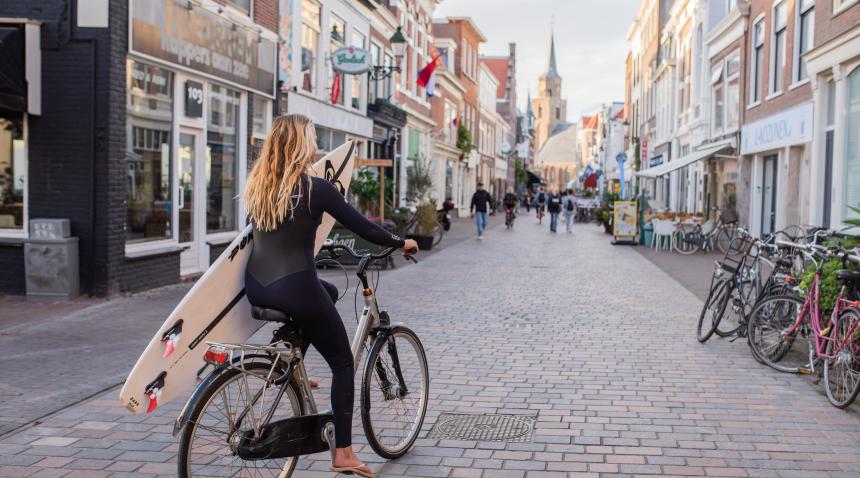
Housing rights
If you're planning to rent a house in The Hague, it's reassuring to know that Dutch law offers strong protection for tenants. One of the key advantages of renting in the Netherlands is the support available from independent organisations that help resolve disputes and safeguard your rights.
Understanding your rights and responsibilities as a tenant can help you avoid common pitfalls and make confident, informed decisions. If you're unsure about any aspect of renting, there are several agencies ready to offer expert guidance.
The Good Landlordship Act
The Good Landlordship Act (Wet goed verhuurderschap) came into force on 1 July 2023. It was introduced to prevent exploitation and poor practices in the rental sector. It protects both tenants and those searching for housing from issues such as discrimination, harassment, excessive deposits, and unfair service charges. The law applies to private landlords, rental agencies, employers offering housing to migrant workers, and housing associations.
Seven Key Rules for Good Landlordship:
- No discrimination in the selection of tenants.
- No intimidation or harassment of tenants.
- Deposits must not exceed two months’ basic rent.
- Rental agreements must be in writing.
Tenants must receive clear information, including:
Their rights and responsibilities
Deposit amount and refund date
Landlord’s contact details
Details of the municipal complaints hotline
A full breakdown of service charges
- Service charges must comply with legal standards.
- Rental agencies may not charge mediation fees to tenants.
Municipalities now have the authority to enforce these rules, issue fines, and offer hotlines for reporting landlord misconduct. Do you need help filing a report and are you a resident of The Hague? Contact the Servicepunt XL.
For rental contracts signed on or after 1 January 2025, landlords are also required to provide a written point system alongside the rental agreement. This document can be useful when requesting a rent check or applying for an affordable housing permit.
How to Handle Disputes
One of the key advantages of renting property in the Netherlands is the availability of independent agencies that help resolve disputes and protect tenant rights. For instance, if a landlord fails to carry out essential repairs within a reasonable timeframe, tenants can turn to the Rent Tribunal (Huurcommissie). The Rent Tribunal is an impartial and independent authority that mediates between tenants and landlords. It provides support in cases involving disagreements on rent levels, property maintenance, or service charges. Disputes are assessed based on current legislation and regulations, and the Tribunal issues binding decisions that both parties must adhere to. In some cases, the Tribunal may order the landlord to complete necessary repairs. Alternatively, it may reduce the rent to reflect the diminished living conditions caused by unresolved maintenance issues.
If the rent seems too high, you can request a rent check through the Rent Tribunal within six months of your contract start date. They’ll assess whether the rent should be reduced. If so, the new rate applies from the start of your agreement.
If you are concerned that your landlord may be raising your rent unfairly, overcharging for services, or acting improperly in any way, get in contact with the Fair Rent Team (Huurteam) at your local municipality. You can ask them questions about your rental contract, housing permits, disputes with your landlord and more. They can guide you or help you get in touch with the right authorities.
Legal Advisors (Sociale Raadslieden) offer confidential, free consultations—typically lasting around 30 minutes—on matters related to laws and regulations. If more time is needed, a follow-up appointment can be arranged. These professionals are registered social-legal service providers and can also assist with issues involving landlords for residents residents of The Hague.
The Hague Housing Inspection Bureau (Haagse Pandbrigade) is responsible for monitoring the safety of buildings and properties throughout the city. It also investigates whether property owners, tenants, and landlords are complying with local building and housing regulations. The Hague Housing Inspection Bureau maintains safety and quality of life in The Hague’s neighbourhoods, inspecting buildings for overdue maintenance, illegal use, overcrowding and more.
The Legal Helpdesk (Juridisch Loket) is able to help with all legal issues in the Netherlands for individuals and families that fall within a particular income bracket. Visit WA.nl for more information on tenancy law in the Netherlands.



